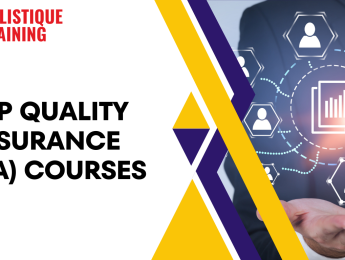- Table of Contents
- 1. Certified Software Quality Analyst (CSQA) by QAI Global Institute
- 2. Certified Quality Engineer (CQE) by ASQ
- 3. Lean Six Sigma Green Belt Certification by Six Sigma Institute
- 4. ISTQB Foundation Level Certification by ISTQB
- 5. Certified Quality Auditor (CQA) by ASQ
- 6. Quality Management System (QMS) Lead Auditor by IRCA
- 7. Advanced Level Test Manager by ISTQB
- 8. Comprehensive Quality Control And Assurance by Holistique Training
Introduction
Learning Quality Assurance (QA) involves mastering the principles and practices that ensure products and services meet specified requirements and standards. This field encompasses designing and implementing quality control structures, conducting thorough audits, and fostering a quality-first mentality within organizations. It also includes understanding industry standards, such as ISO guidelines, and utilizing problem-solving techniques to uncover root causes and achieve positive outcomes. Through QA training, professionals can establish clear guidelines, manage underperformance, and play a critical role in maintaining and enhancing the quality of their organization's offerings.
1. Certified Software Quality Analyst (CSQA) by QAI Global Institute
Summary:
The CSQA course focuses on principles and practices that guide software quality assurance. It includes quality control, quality assurance, and software engineering principles to improve the development process and product quality.
Duration:
3-5 days (depending on the provider)
Language:
English
Level:
Intermediate to Advanced
What does a CSQA Course teach you?
The CSQA course teaches you software quality principles, quality management, testing methodologies, and process improvement techniques. It covers the full software development lifecycle, from requirements to release.
Who should take the CSQA course?
This course is ideal for software quality professionals, QA analysts, and testers who have a few years of experience and are looking to enhance their knowledge and credentials in software quality assurance.
Why should you take the CSQA course?
You should take the CSQA course to validate your expertise in software quality assurance, learn advanced quality assurance practices, and improve your career prospects in the software industry.
2. Certified Quality Engineer (CQE) by ASQ
Summary:
The CQE course provides in-depth knowledge of quality engineering principles, statistical methods, and quality control tools. It prepares participants for the CQE certification exam by covering topics such as product and process design, testing and inspection, and quality management systems.
Duration:
5-7 days
Language:
English
Level:
Intermediate to Advanced
What does a CQE Course teach you?
The CQE course teaches quality management principles, statistical quality control, quality auditing, and the application of quality tools and techniques to improve processes and products.
Who should take the CQE course?
This course is suitable for quality engineers, quality managers, and other professionals involved in quality control and quality assurance activities within their organizations.
Why should you take the CQE course?
You should take the CQE course to gain a recognized certification, improve your understanding of quality engineering principles, and enhance your ability to implement effective quality management systems.
3. Lean Six Sigma Green Belt Certification by Six Sigma Institute
Summary:
The Lean Six Sigma Green Belt course combines Lean principles and Six Sigma methodologies to teach participants how to improve processes, reduce waste, and increase efficiency. The course covers DMAIC (Define, Measure, Analyze, Improve, Control) framework and various tools and techniques for quality improvement.
Duration:
10 days
Language:
English
Level:
Intermediate
What does a Lean Six Sigma Green Belt Course teach you?
The course teaches you how to apply Lean and Six Sigma principles to identify and eliminate waste, improve processes, and enhance product quality. It covers the DMAIC framework and various statistical and quality tools.
Who should take the Lean Six Sigma Green Belt course?
This course is ideal for professionals involved in process improvement, quality management, and operational excellence. It is suitable for individuals who want to lead quality improvement projects within their organizations.
Why should you take the Lean Six Sigma Green Belt course?
You should take this course to gain practical skills in process improvement, increase your value to your organization, and obtain a globally recognized certification in Lean Six Sigma.
4. ISTQB Foundation Level Certification by ISTQB
Summary:
The ISTQB Foundation Level Certification course provides a basic understanding of software testing principles and practices. It covers testing techniques, test management, and the role of testing in the software development lifecycle.
Duration:
3 days
Language:
English
Level:
Beginner
What does an ISTQB Foundation Level Course teach you?
The course teaches you the fundamentals of software testing, including testing principles, types of testing, test design techniques, and test management. It also covers the importance of testing in ensuring software quality.
Who should take the ISTQB Foundation Level course?
This course is suitable for anyone involved in software testing, including testers, test analysts, test engineers, and developers who want to understand the basics of software testing.
Why should you take the ISTQB Foundation Level course?
You should take this course to gain a foundational understanding of software testing, enhance your testing skills, and obtain a globally recognized certification in software testing.
5. Certified Quality Auditor (CQA) by ASQ
Summary:
The CQA course focuses on auditing principles and techniques used to assess and improve quality management systems. It covers audit preparation, conduct, reporting, and follow-up activities, along with various audit types and standards.
Duration:
5 days
Language:
English
Level:
Intermediate to Advanced
What does a CQA Course teach you?
The course teaches you how to plan, conduct, and report quality audits. It covers auditing techniques, audit types, and standards, as well as how to evaluate and improve quality management systems.
Who should take the CQA course?
This course is ideal for quality auditors, quality managers, and professionals involved in quality assurance and auditing activities within their organizations.
Why should you take the CQA course?
You should take this course to gain expertise in quality auditing, improve your ability to assess and enhance quality management systems, and obtain a recognized certification in quality auditing.
6. Quality Management System (QMS) Lead Auditor by IRCA
Summary:
The QMS Lead Auditor course provides comprehensive training on conducting audits of quality management systems based on ISO 9001 standards. It covers audit planning, execution, reporting, and follow-up, along with the principles and practices of quality management.
Duration:
5 days
Language:
English
Level:
Advanced
What does a QMS Lead Auditor Course teach you?
The course teaches you how to conduct effective audits of quality management systems based on ISO 9001 standards. It covers audit planning, execution, reporting, and follow-up, as well as quality management principles.
Who should take the QMS Lead Auditor course?
This course is suitable for quality managers, auditors, and professionals responsible for maintaining and improving quality management systems within their organizations.
Why should you take the QMS Lead Auditor course?
You should take this course to gain expertise in auditing quality management systems, improve your ability to ensure compliance with ISO 9001 standards, and obtain a recognized certification in QMS auditing.
7. Advanced Level Test Manager by ISTQB
Summary:
The Advanced Level Test Manager course by ISTQB is designed for experienced test managers and focuses on test management principles, strategies, and techniques. It covers test planning, monitoring, control, and reporting, as well as risk management and team leadership.
Duration:
5 days
Language:
English
Level:
Advanced
What does an Advanced Level Test Manager Course teach you?
The course teaches you advanced test management skills, including test planning, monitoring, control, and reporting. It also covers risk management, defect management, and team leadership.
Who should take the Advanced Level Test Manager course?
This course is ideal for experienced test managers, test leaders, and senior testers who are responsible for managing test activities and teams within their organizations.
Why should you take the Advanced Level Test Manager course?
You should take this course to enhance your test management skills, improve your ability to lead testing projects and teams, and obtain a recognized certification in test management.
8. Comprehensive Quality Control And Assurance by Holistique Training
Summary: Quality assurance courses teach you to design and implement quality control structures, conduct audits, and foster a quality-first mentality. They cover establishing clear guidelines, managing underperformance, understanding ISO standards, defining roles within a quality team, and applying problem-solving techniques to achieve positive outcomes.
Duration:
5 days
Language:
English
Level:
Advanced
What does a Comprehensive Quality Control And Assurance Course teach you?
This course teaches you to design and implement effective quality control structures, conduct regular audits, and foster a quality-first mentality within your organization. It also covers establishing clear guidelines, managing underperformance, understanding ISO standards, defining roles within a quality team, and applying problem-solving techniques to achieve positive outcomes.
Who should take the Comprehensive Quality Control And Assurance course?
This course is ideal for experienced quality managers, quality control professionals, and senior QA analysts who are responsible for overseeing and improving quality management systems within their organizations.
Why should you take the Comprehensive Quality Control And Assurance course?
You should take this course to enhance your skills in quality control and assurance, gain a deeper understanding of ISO standards, and learn advanced techniques for managing quality and addressing performance issues. This course will help you establish a robust quality framework and lead your team to achieve higher quality outcomes.
Table: Summary of Top Quality Assurance (QA) Courses
Course Name | Duration | Language | Level |
Certified Software Quality Analyst (CSQA) by QAI Global Institute | 3-5 days | English | Intermediate to Advanced |
Certified Quality Engineer (CQE) by ASQ | 5-7 days | English | Intermediate to Advanced |
Lean Six Sigma Green Belt Certification by Six Sigma Institute | 10 days | English | Intermediate |
ISTQB Foundation Level Certification by ISTQB | 3 days | English | Beginner |
Certified Quality Auditor (CQA) by ASQ | 5 days | English | Intermediate to Advanced |
Quality Management System (QMS) Lead Auditor by IRCA | 5 days | English | Advanced |
Advanced Level Test Manager by ISTQB | 5 days | English | Advanced |
Comprehensive Quality Control and Assurance by Holistique Training | 5 days | English | Advanced |

























